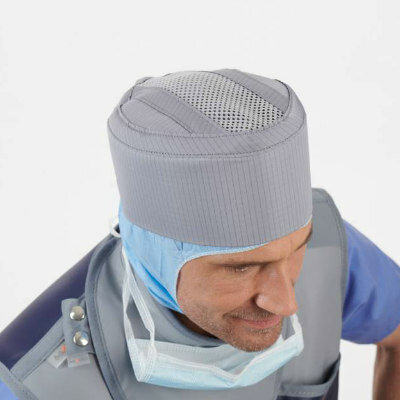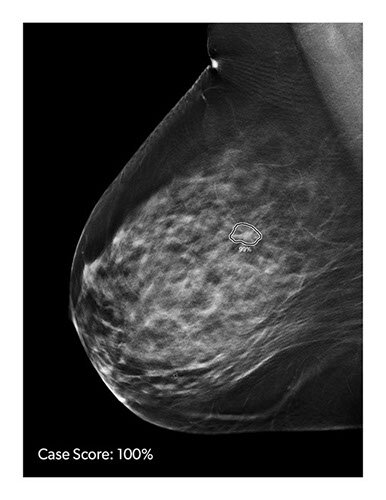AI Algorithm Processes MRI and Cognitive Scores to Predict Progression to Alzheimer's Dementia
|
By MedImaging International staff writers Posted on 17 Jan 2024 |
.jpg)
Globally, over 100 million patients are struggling with amnestic mild cognitive impairment (aMCI), a condition that can either stabilize, improve, or progress to Alzheimer’s dementia. Accurate prognosis assessment is critical for developing effective care and treatment plans. Typically, physicians conduct cognitive function tests and order a brain MRI scan for these patients. Now, a revolutionary medical AI algorithm improves the assessment process by integrating brain MRI data with cognitive test scores to produce a score between 0 and 100. This score aids doctors in determining the likelihood of a patient’s progression from aMCI to Alzheimer’s dementia.
Darmiyan’s (San Francisco, CA, USA) BrainSee is the first FDA-approved medical software designed for evaluating the prognosis of aMCI patients. BrainSee represents a significant advancement in the field, combining state-of-the-art image processing and medical AI to set a new benchmark in predicting the transition from aMCI to Alzheimer's dementia. This innovation offers a fully non-invasive, accessible, and convenient screening tool, prioritizing it before other tests or treatments. BrainSee is a clinical application of Darmiyan's core proprietary technology, which is grounded in over 40 years of advanced brain science. It utilizes a highly scalable, fully-automated platform that merges standard clinical brain MRI and cognitive assessments – routine procedures for patients experiencing memory concerns – to generate an objective score predicting the likelihood of progression to Alzheimer's dementia within five years.
BrainSee's early screening and risk stratification capabilities allow for timely, personalized treatments for high-risk aMCI patients, aiming to delay the onset of dementia. It also offers reassurance to those at lower risk, potentially reducing the need for more invasive and expensive tests. This shift from prolonged anxiety to proactive management is crucial in the era of emerging Alzheimer's treatments, where precise prognoses can guide the selection of suitable treatment candidates. BrainSee is poised to have a significant economic impact on healthcare, potentially reducing the billions spent annually on Alzheimer’s care through more effective management and treatment. Its standout features include prognostic accuracy, patient convenience, immediate test results, and seamless integration into clinical workflows. The widespread availability of MRI further enhances BrainSee's clinical utility, marking a paradigm shift in aMCI workup from biomarker-based methods – often limited by invasiveness, non-specificity, cost, and inaccessibility – to non-invasive and actionable forecasts of future improvement or progression.
"Our vision is to redefine brain health screening and monitoring standards and impact the lives of patients and their family members in a meaningful way," stated Dr. Padideh Kamali-Zare, Founder and CEO of Darmiyan. “BrainSee is the first product of this vision, backed by our solid technological infrastructure that is capable of driving further transformations and scalable innovations in the brain health landscape.”
Latest MRI News
- PET/MRI Improves Diagnostic Accuracy for Prostate Cancer Patients
- Next Generation MR-Guided Focused Ultrasound Ushers In Future of Incisionless Neurosurgery
- Two-Part MRI Scan Detects Prostate Cancer More Quickly without Compromising Diagnostic Quality
- World’s Most Powerful MRI Machine Images Living Brain with Unrivaled Clarity
- New Whole-Body Imaging Technology Makes It Possible to View Inflammation on MRI Scan
- Combining Prostate MRI with Blood Test Can Avoid Unnecessary Prostate Biopsies
- New Treatment Combines MRI and Ultrasound to Control Prostate Cancer without Serious Side Effects
- MRI Improves Diagnosis and Treatment of Prostate Cancer
- Combined PET-MRI Scan Improves Treatment for Early Breast Cancer Patients
- 4D MRI Could Improve Clinical Assessment of Heart Blood Flow Abnormalities
- MRI-Guided Focused Ultrasound Therapy Shows Promise in Treating Prostate Cancer
- AI-Based MRI Tool Outperforms Current Brain Tumor Diagnosis Methods
- DW-MRI Lights up Small Ovarian Lesions like Light Bulbs
- Abbreviated Breast MRI Effective for High-Risk Screening without Compromising Diagnostic Accuracy
- New MRI Method Detects Alzheimer’s Earlier in People without Clinical Signs
- MRI Monitoring Reduces Mortality in Women at High Risk of BRCA1 Breast Cancer
Channels
Radiography
view channel
Novel Breast Imaging System Proves As Effective As Mammography
Breast cancer remains the most frequently diagnosed cancer among women. It is projected that one in eight women will be diagnosed with breast cancer during her lifetime, and one in 42 women who turn 50... Read more
AI Assistance Improves Breast-Cancer Screening by Reducing False Positives
Radiologists typically detect one case of cancer for every 200 mammograms reviewed. However, these evaluations often result in false positives, leading to unnecessary patient recalls for additional testing,... Read moreUltrasound
view channel
Deep Learning Advances Super-Resolution Ultrasound Imaging
Ultrasound localization microscopy (ULM) is an advanced imaging technique that offers high-resolution visualization of microvascular structures. It employs microbubbles, FDA-approved contrast agents, injected... Read more
Novel Ultrasound-Launched Targeted Nanoparticle Eliminates Biofilm and Bacterial Infection
Biofilms, formed by bacteria aggregating into dense communities for protection against harsh environmental conditions, are a significant contributor to various infectious diseases. Biofilms frequently... Read moreNuclear Medicine
view channel
New SPECT/CT Technique Could Change Imaging Practices and Increase Patient Access
The development of lead-212 (212Pb)-PSMA–based targeted alpha therapy (TAT) is garnering significant interest in treating patients with metastatic castration-resistant prostate cancer. The imaging of 212Pb,... Read moreNew Radiotheranostic System Detects and Treats Ovarian Cancer Noninvasively
Ovarian cancer is the most lethal gynecological cancer, with less than a 30% five-year survival rate for those diagnosed in late stages. Despite surgery and platinum-based chemotherapy being the standard... Read more
AI System Automatically and Reliably Detects Cardiac Amyloidosis Using Scintigraphy Imaging
Cardiac amyloidosis, a condition characterized by the buildup of abnormal protein deposits (amyloids) in the heart muscle, severely affects heart function and can lead to heart failure or death without... Read moreGeneral/Advanced Imaging
view channel
New AI Method Captures Uncertainty in Medical Images
In the field of biomedicine, segmentation is the process of annotating pixels from an important structure in medical images, such as organs or cells. Artificial Intelligence (AI) models are utilized to... Read more.jpg)
CT Coronary Angiography Reduces Need for Invasive Tests to Diagnose Coronary Artery Disease
Coronary artery disease (CAD), one of the leading causes of death worldwide, involves the narrowing of coronary arteries due to atherosclerosis, resulting in insufficient blood flow to the heart muscle.... Read more
Novel Blood Test Could Reduce Need for PET Imaging of Patients with Alzheimer’s
Alzheimer's disease (AD), a condition marked by cognitive decline and the presence of beta-amyloid (Aβ) plaques and neurofibrillary tangles in the brain, poses diagnostic challenges. Amyloid positron emission... Read more.jpg)
CT-Based Deep Learning Algorithm Accurately Differentiates Benign From Malignant Vertebral Fractures
The rise in the aging population is expected to result in a corresponding increase in the prevalence of vertebral fractures which can cause back pain or neurologic compromise, leading to impaired function... Read moreImaging IT
view channel
New Google Cloud Medical Imaging Suite Makes Imaging Healthcare Data More Accessible
Medical imaging is a critical tool used to diagnose patients, and there are billions of medical images scanned globally each year. Imaging data accounts for about 90% of all healthcare data1 and, until... Read more
Global AI in Medical Diagnostics Market to Be Driven by Demand for Image Recognition in Radiology
The global artificial intelligence (AI) in medical diagnostics market is expanding with early disease detection being one of its key applications and image recognition becoming a compelling consumer proposition... Read moreIndustry News
view channel
Bayer and Google Partner on New AI Product for Radiologists
Medical imaging data comprises around 90% of all healthcare data, and it is a highly complex and rich clinical data modality and serves as a vital tool for diagnosing patients. Each year, billions of medical... Read more




















